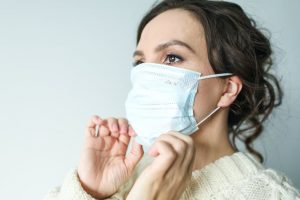Sweeping closures of California businesses due to the COVID-19 pandemic left millions of Californians unemployed. Now, as the curve of coronavirus cases has flattened and state officials have announced measures that will allow more businesses to reopen, Los Angeles employment lawyers have been receiving questions about what rights workers have in returning. 
These include questions about what personal protective equipment employers are required to provide, what to do if they don’t feel safe returning and what to know if their employer retaliates for reporting unsafe conditions.
Safety First – COVID-19 Protection at Work
All California employers are required to provide a reasonably safe workplace. As outlined in Section 5(a)(1) of the Occupational Safety and Health Act of 1970, employers have a general duty to provide every worker with a place of employment that is free from recognized hazards that are causing or are likely to cause death or serious harm.
Further, OSHA’s personal protective equipment (PPE) standards require the use of eye and face protection, gloves, and respirator protection “when job hazards warrant it.”
The question of whether an employer can reopen a workplace that is safe and the type of PPE equipment they should provide will depend largely on the type of industry. There is no one-solution-fits-all. For example, someone who works on a farm is going to have different PPE needs than someone employed at a grocery store.
If your employer reopens, but you do not feel comfortable returning, understand that you may lose both your job and access to unemployment benefits. This is only if your employer did what was reasonably expected to create a safe working environment OR you have a medical reason to assert your immunity is compromised and thus you are higher risk. For example, if you are undergoing chemotherapy, your doctor can write you a note indicating you should be quarantined or self-isolating.
If you are concerned that the lack of PPE leaves you or your co-workers unsafe, you should express those concerns to your employer. It is illegal for your employer to retaliate against you for raising concerns about safety and health conditions.
You should also tell your employer if you test positive for COVID-19 because your employer has a responsibility to report that to other co-workers who may have come in contact with you during the day. It’s not necessary that it be reported company-wide, but workers have a right to know if their health may be at risk. The employer isn’t allowed to specify who tested positive. Failure to do this can result in penalties from the California Occupational Safety and Health Administration (the agency you should contact if your employer fails to let potentially affected workers know).
Federal Protections in the Wake of COVID-19
There is federal protection for employees of certain companies under the
Families First Coronavirus Response Act. This law expands paid sick leave and family and medical leave for certain reasons related to the pandemic.
The law provides up to two weeks (80 hours) of paid sick leave at the worker’s regular rate when the employee can’t work due to quarantine (federal, state or local government order or advice of a health care provider) and/or is experiencing COVID-19 symptoms and is seeking a medical diagnosis. Paid sick leave at a 2/3 regular rate should be paid because a worker has a legitimate need to care for another person subject to quarantine OR whose school or child care provider is closed due to reasons related to the pandemic.
Further, up to 10 weeks of extended family and medical leave at a 2/3 pay rate should be offered if the employee can’t work due to a need to care for someone else with the virus OR because they have no child care due to reasons related to the virus. (This is assuming you were employed for at least 30 days prior.)
These rules, which apply to most public employers and private employers with fewer than 500 workers, are in effect until Dec. 31, 2020. Small businesses with fewer than 50 employees can apply for exemption on paid leave requests due to school or daycare closures where it would jeopardize the business viability.
Workers are expected to give employers as much notice as is practicable.
Contact the employment attorneys at Nassiri Law Group, practicing in Orange County, Riverside and Los Angeles. Call 949-375-4734.
Additional Resources:

 Orange County Employment Lawyers Blog
Orange County Employment Lawyers Blog

